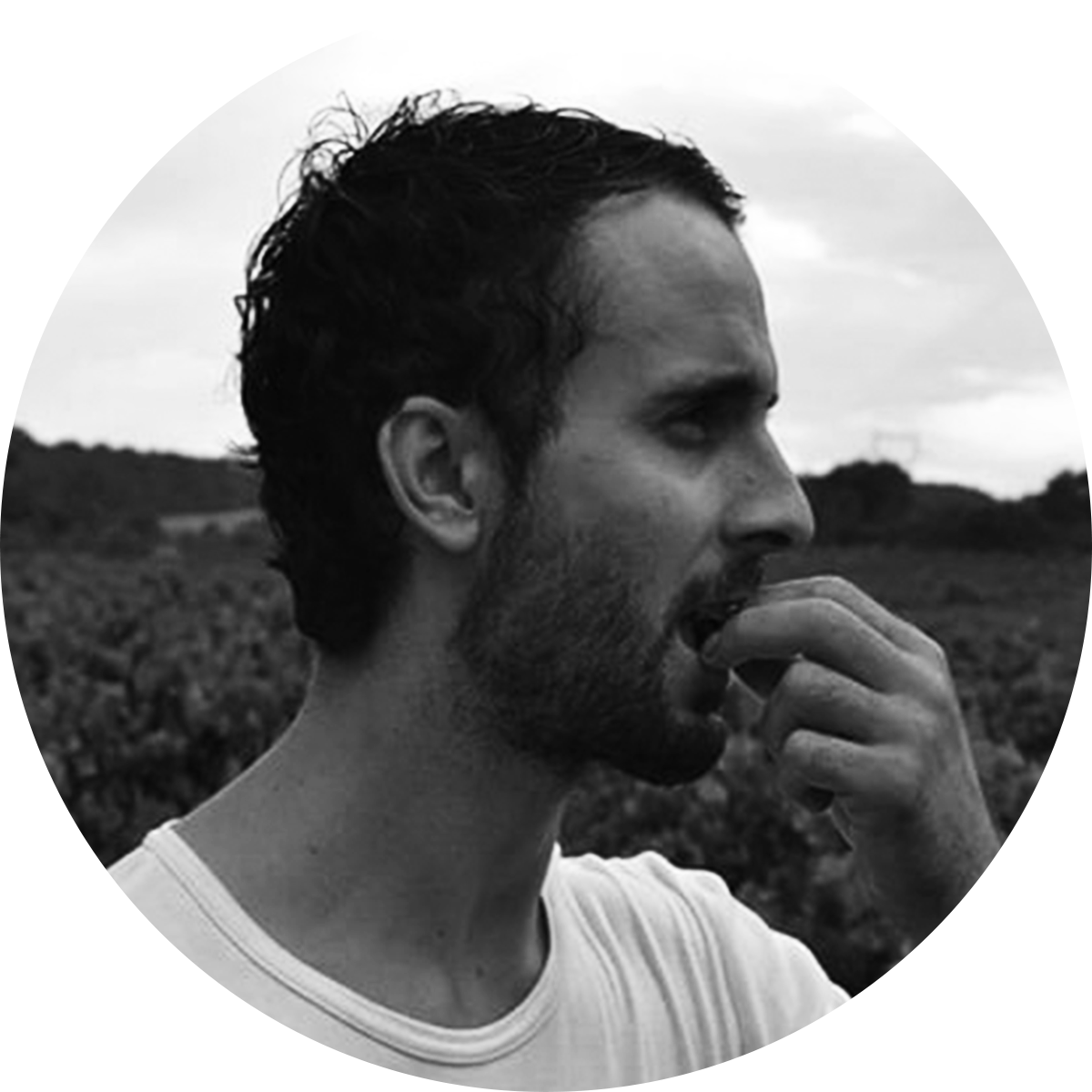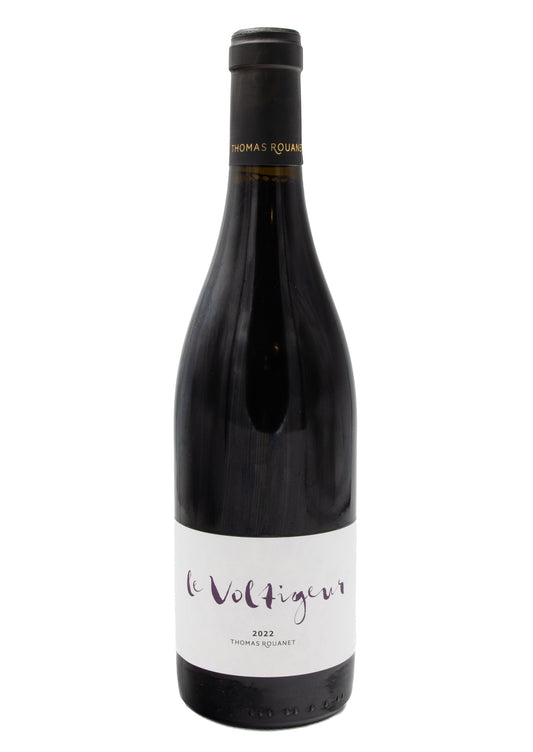DOMAINE THOMAS ROUANET
THOMAS ROUANET
Languedoc-Roussillon, France
"In the end, we create nothing; we're only continuing what has been given to us through different generations, following what has been taught to us." Thomas Rouanet
Thomas Rouanet has worked with Yannick Pelletier, also a winemaker from the Languedoc-Roussillon region, since 2011 and it was in 2012 that he vinified his first own vintage. His 5-hectare vineyard -in the beautiful village of Creissan - is located in the southern part of the appellation zone. (St. Chinian). The terroir is a clay-limestone mix. Thomas’ vineyard is planted with Grenache noir, Carignan, Syrah, Alicante, Terret gris and white and soon Cinsault. The vines have been organically cultivated since the 1990’s and previously belonged to his winegrower grand-father. Thomas’ life story has been largely influenced by his family history and his grandad’s passion for his job.
MORE OF DOMAINE THOMAS ROUANET
-
Domaine Thomas Rouanet Supersonique 2024
Regular price HK$190.00Regular priceUnit price / per -
Communal Table: Dining with Natural Wine and Makgeolli 15.01.2025
Regular price HK$450.00Regular priceUnit price / per -
Domaine Thomas Rouanet Voltigeur 2023
Regular price HK$220.00Regular priceUnit price / per -
Domaine Thomas Rouanet Bombadilom 2024
Regular price HK$180.00Regular priceUnit price / per -
Domaine Thomas Rouanet Spartacus 2024
Regular price HK$190.00Regular priceUnit price / per
BACKGROUND OF NATURAL WINE IN LANGUEDOC-ROUSSILLON
Nestled in the sun-drenched landscapes of southern France, the Languedoc-Roussillon wine region is one of the largest and most diverse wine-producing areas in the world. Renowned for its Mediterranean climate, varied terroir, and historic winemaking traditions, it boasts an extensive range of wine styles, from robust reds and aromatic whites to elegant rosés. Popular grape varieties cultivated in the region include Carignan, Grenache, Syrah, Mourvèdre, and Viognier, among others.
Organic, Biodynamic and Natural wine. What’s the difference?
To understand this concept and its various ramifications, it is necessary to keep something clear in mind: before the 20th century and the spreading of affordable synthetic fertilisers, all farming was organic. When the shift to the use of synthetics and pesticides happened, it became necessary to diversify traditional organic farming from the new modern farming.
ORGANIC WINE
Simply put, organic farming forbids the use of synthetic fertilisers, synthetic pesticides, herbicides, or genetically modified organisms. The basic requirements are generally specific and engage the farmers not to use any chemical fertilisers and other synthetic products in the vineyard. It does not prevent the vintner from using the conventional winemaking process after harvesting.
BIODYNAMIC WINE
Let’s take organic farming one step further: Biodynamic. The creator of this agricultural system is the Austrian philosopher Rudolf Steiner, who developed the principles of biodynamics in a series of lectures given in 1924 in Germany. Here lies the foundation of true organic wines, with a strict limit in the use of additives, stringent requirements and at the end obtaining a biodynamic certification.
NATURAL WINE
The previous definitions are usually, and rightfully, associated with it, because most natural wine is also organic and/or biodynamic. But not vice versa!
Natural wine is wine in its purest form, simply described as nothing added, nothing taken away, just grapes fermented. No manipulation whatsoever, minimal intervention both in the vineyards and in the winery. Healthy grapes, natural yeast and natural fermentation, with no filtration nor fining. Sounds easy, right? However, making natural wine is unforgiving and it requires a bigger amount of work than conventional wine. To this day, natural wine has no certification yet.










